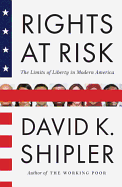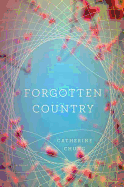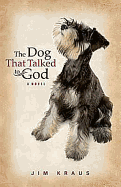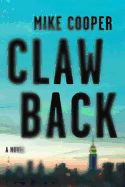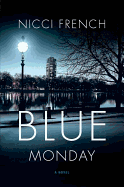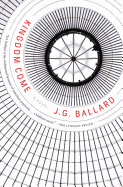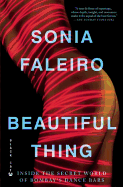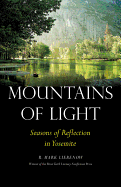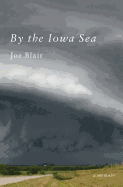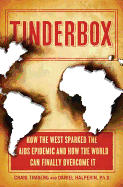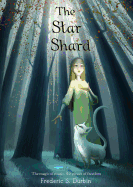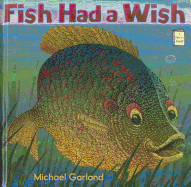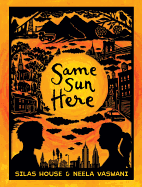Today is my birthday, and since it's also a Friday, I've decided to claim a three-day weekend featuring dinner with friends (cooked by my husband--yay!), and... a reading extravaganza. I have a special shelf, out of many shelves, that holds books I really want to read. This shelf undergoes frequent culling, but some books stay, and those are the books I will choose.
I'll be finishing Peter Robinson's Before the Poison, a haunting story of a woman hanged for murder in 1953, and the man who buys her house in England and is intrigued the mystery surrounding her. Then Jenny Lawson's memoir, Let's Pretend This Never Happened, which is coming in April. Someone sent me this link to her blog, and I really did laugh until I cried. A more serious book I have been waiting to read is The New Jim Crow by Michelle Alexander, "handsold" to me via an editorial by Leonard Pitts, Jr. And John Donne: The Reformed Soul, a biography by John Stubbs. It came out six years ago, and I'm determined to finally read it, because I know I will sink into it and love it. How could I not? Here's the start: "His mistress lived with her parents, and access was a problem."
My husband gave me Sex, Death and Oysters by Robb Walsh for Christmas, knowing how much I love raw oysters. That's next. Then one of my favorite authors, in the vein of Anne Lamott and Barbara Brown Taylor, Lauren Winner. Her latest book is Still: Notes on a Mid-Faith Crisis--I read half of it a few months ago, then got sidetracked by work (of all things) and am eager to finish it.
This may seem ambitious, but given a day with no distractions, I've been known to put away three mysteries. The only problem will be my desire to read mysteries the entire weekend. But all that really remains to be decided is snacks. Tea with the Donne biography; Tim's Sea Salt and Vinegar potato chips with Jenny Lawson; red wine with everything else. --Marilyn Dahl, book review editor, Shelf Awareness
Forgotten Country
by Catherine Chung
The forgotten country in Catherine Chung's memorable first novel is not Korea, but an America that has become taboo for those still earnestly seeking fulfillment. Forgotten Country begins with the sudden disappearance of Hannah, Janie's younger sister. Hannah's disappearance turns out to be temporary, but it echoes past disappearances--both voluntary and coerced--throughout the lives of other female members in the sisters' Korean-American family. Since the Japanese occupation of Korea, Janie's grandmother has told her, their family has lost a daughter in every generation. On the day Hannah was born, Janie was told to keep Hannah safe; she understandably feels shackled by this onerous burden. Hannah's disappearance also reminds her mother of her own sister's erasure--she was abducted by North Koreans and never heard from again.
While these disappearances subvert the relationship between the protector and the protected, love eats away at the family member who successfully "saves" her charge. Janie and Hannah's paternal aunt is a bitter woman who sacrificed her youth to raise their father and feels that her brother owes her his very existence.
In Forgotten Country, the past--a vigilant revenant--tirelessly seeks to strangle the present. The novel seamlessly incorporates Austen and Chekhov to create a claustrophobic milieu where emotional snares lurk behind well-choreographed behavior and modes of speech. Characters cross an entire ocean to congregate in a country house, but nothing changes from the outside of things. --Thuy Dinh, editor, Da Mau magazine
Discover: An indelible portrayal of familial love that vacillates between oppression and impotence.
The Dog That Talked to God
by Jim Kraus
How does a person of faith go on living after tragedy strikes? That's the question the recently widowed, burned-out, 43-year-old Mary Fassler faces in The Dog That Talked to God by Jim Kraus (The Silence). Disillusioned by the platitudes offered by well-meaning friends and family in an effort to ease her inconsolable grief, Mary--shaken, lost and confused--decides to adopt a Schnauzer puppy named Rufus in the hope he will offer her companionship. During their daily walks through the suburbs of Chicago, Mary talks to Rufus, railing against a God from whom she feels estranged and abandoned, while trying to make sense of a past she can't let go of and the prospect of a lonely, uncertain future. One day, Rufus unexpectedly talks back to Mary and informs her that he is in regular communication with The Almighty. When he begins to relay messages from God, Mary begins to pine less and listen more.
Rufus becomes the impetus for Mary to reconcile her life. Kraus's dog-savior scenario feels plausible because of Rufus's quirky, gentle soul, while Mary's philosophical, humorous and refreshingly honest narrative buoys an otherwise heartbreaking predicament. As Mary interacts with family, friends and new love interests, her unwitting spiritual recovery propels her to set off with Rufus on a pilgrimage in search of a new life. Kraus's novel is an entertaining, deeply engrossing portrait of what it means to be fully human and fully alive. --Kathleen Gerard, blogger at Reading Between the Lines
Discover: A lovable talking dog helps a grieving widow reconcile her life and learn how to live again.
Mystery & Thriller
Clawback
by Mike Cooper
When Wall Street's worst-performing financiers start dying in suspicious ways, financial "consultant" Silas Cade--who happens to be a black ops vet--is hired by an investment banker to investigate. Are angry investors who lost their life savings targeting money managers? Clara Dawson, a fledgling financial blogger looking for a big scoop, wangles her way into Cade's investigation and soon gets caught up in the violence. Cade's role expands to protect her, as he discovers that greed has no boundaries, not even murder.
"Clawback" is a term used in the financial industry to describe cases in which a firm reclaims payouts that it's already made or investors agree to return dividends they've already received, to cover subsequent losses; to illustrate the concept, Cade exacts a particularly forceful clawback on one of his client's investors early in the proceedings. ("Mike Cooper" is a pseudonym for a former financial executive, who also has a prior track record as a thriller writer under a different name). Even with Cooper's detailed explanations, some of the intricacies involved in investment strategies may go over readers' heads, but the action is tight enough to make up for any confusion. And there's humor in the scenario of nervous bankers packing heat to defend themselves, which doesn't bode well when they all get together for a fancy event.
Cade is a likable character with a wry worldview, though he's a little slow in figuring out some of Clara's motives and those of the people doing the--and making a--killing. Perhaps, though, this makes him more accessible. The ending suggests he might have something in common with Jack Reacher and, like that character, Cade may not be such a loner when readers follow him to his next adventure. --Elyse Dinh-McCrilllis, freelance writer/editor, blogging at Pop Culture Nerd
Discover: A Wall Street thriller engaging enough even for financial laymen.
Blue Monday
by Nicci French
Nicci French’s Blue Monday is the first novel in a new suspense series featuring Frieda Klein, an insomniac London psychologist who does her best thinking while taking long walks through city streets at night. She has a lot on her mind, including a patient named Alan Dekker who tells her he desperately wants a child--right before five-year-old Matthew Farraday goes missing from a local school. Alan wants a son who looks like him, with red hair and freckles--attributes Matthew happens to have.
Frieda takes her suspicions to the lead inspector in the case, and together they uncover perplexing similarities to the unsolved disappearance of a little girl 22 years earlier. Frieda makes a couple of leaps in reasoning that require suspension of disbelief, but the inner workings of the mind are mysterious, so anything is possible. The authors ("Nicci French" is a pseudonym for husband and wife Sean French and Nicci Gerrard) write in a cool, understated style befitting a protagonist who keeps her emotions at bay, and it works well for the story. Their restraint is helpful; the reader doesn't need all the horrific details of a child in jeopardy spelled out. But the story still manages to resonate, especially in its depictions of the families of the abducted children--the lack of closure tears them apart to the point their souls go missing, too. The dark ending also delivers a gut punch, making Blue Monday a shade closer to black. --Elyse Dinh-McCrilllis, freelance writer/editor, blogging at Pop Culture Nerd
Discover: Nicci French's new heroine is a psychologist forced to choose between her patient and a missing child.
Science Fiction & Fantasy
Kingdom Come
by J.G. Ballard
Kingdom Come is the second of two J.G. Ballard novels that had been unpublished in the U.S. during the author's lifetime. It's heavily grounded in the themes that dominated much of Ballard's fiction during the 1990s and 2000s--especially the dark side of that era's economic prosperity. Kingdom Come probes a thriving suburb nestled in the shadow of Heathrow, where a shopping mall anchors the community's gradual slide into a 21st-century fascism.
Richard Pearson arrives in Brooklands after his father is killed by a lone gunman in a mall shooting, only to learn that the primary suspect has been released based on the testimony of prominent eyewitnesses. Wondering if there's a conspiracy that's somehow related to the town's nationalistic undercurrent of racism, he decides to stick around and investigate.
Kingdom Come is less concerned with its story than with its themes; Pearson's vacillating personality sometimes seem to defy emotional logic for the sake of extending Ballard's opportunities to jab at high consumerism. That said, Kingdom Come works better as a story than Ballard's other fiction from this period and, in a way, the Metro Centre shopping mall of this final novel becomes a reworking of the eponymous luxury skyscraper in Ballard's classic High Rise (1975) pushed in an equally surreal and violent direction.
The Collins English Dictionary defines "Ballardian" as dealing with "dystopian modernity, bleak man-made landscapes and the psychological effects of technological, social or environmental developments." Kingdom Come is all that and then some--a fitting capstone to the Ballard legacy. --Ron Hogan, founder of Beatrice.com
Discover: Like William Gibson, Ballard's late fiction looked at the cutting edge of contemporary society with a science fiction writer's critical, extrapolative eye.
Biography & Memoir
Beautiful Thing: Inside the Secret World of Bombay's Dance Bars
by Sonia Faleiro
Sonia Faleiro met 19-year-old Leela while she was researching an article on Bombay's "bar dancers," the thousands of maltreated, disenfranchised, often alarmingly young girls who make their livings performing for men in dark bars, frequently selling sex at the behest of pimps.
Beautiful Thing is Leela's story, but through her, Faleiro unveils a larger narrative of Bombay's bar dancers and sex workers, one colored by love and violence, glamour and squalor, sex and corruption--and one that reveals the dark heart of Bombay itself. The city and its dance bars attract girls like Leela, who are lured into working "on the line" because of the immediate financial independence it promises. Faleiro discovered that these young women were fleeing horrifying home lives rife with every kind of abuse; she recounts that "every one of the bar dancers in Leela's building had either been raped by a blood relative or sold by one." But even though life on the line is a landmine of danger and exploitation, Leela relishes the freedom it seems to allow her.
Faleiro follows Leela through a year of her life. She meets a vibrant, heartbreaking array of dancers, prostitutes and hijras (physiologically male sex workers who dress and act as women), as well as the pimps, madams, gangsters and corrupt police who govern their lives.
Never judgmental or condescending, Faleiro delivers Leela's story with a reporter's distance and a novelist's immediacy. Leela moves through the pages as a remarkable, tragic and inspiring figure--victim, heroine, survivor. --Hannah Calkins, blogger at Unpunished Vice
Discover: Sonia Faleiro's portrait of one Bombay bar dancer tells an undeniably tragic but grittily inspiring story of thousands of girls like her.
Mountains of Light: Seasons of Reflections in Yosemite
by R. Mark Liebenow
When his wife of 18 years died, R. Mark Liebenow was overcome with grief. He sought relief by following in John Muir's footsteps, consulting naturalists, historians, spiritual guides and artists along the way. Mountains of Light covers a year which he spends (in many short trips) in the Yosemite Valley, contemplating the natural world and the significance of death. He is "looking for the mystery of life," he writes, "even if it can't be solved but only hiked further into."
Mountains of Light is lyrical and decidedly literary. Liebenow's focus drifts: he describes a mountain vista, waxes mystical about the roles that insects and waterfalls and clouds play in the universe, quotes poetry (and Muir), confers with cutting-edge science and remembers his late wife. He includes morsels of history (particularly of Yosemite, from Native Americans through the Mariposa Battalion to the present) and catalogues plant and animal life. He considers various religious and spiritual understandings of nature and death and the mountains, mulling over his options for accepting his tragedy. The background for all this musing is dynamic, as Liebenow takes challenging hikes, explores, gets lost in the wilderness and watches his fellow campers and mountain climbers take still greater risks. The scenery changes drastically in four seasons, which Liebenow interprets metaphorically.
Part travelogue, part natural study and part memoir of grief, Mountains of Light is meditative, lovely, thought-provoking and, yes, sad--but worth it for the appreciation of this natural gem and the redemption it brings. --Julia Jenkins, librarian and blogger at pages of julia
Discover: A quiet, moving memoir of grief and recovery set in the Yosemite Valley.
By the Iowa Sea
by Joe Blair
In the summer of 2008, eastern Iowa's rivers flooded, putting a large portion of the state underwater, including the town where pipe-fitter and sometime writer Joe Blair lived with his family. For Blair, the flood coincided with another disaster, this one personal: the deterioration of his marriage and the final, bitter reckoning between the life he wanted and the life he had.
At the time of the flood, Blair's relationship with his wife, Deb, is creaking under the strain of disillusionment and the unrelenting struggle of parenting a severely autistic son in addition to three other children. Their reality is a far cry from the dreams they had as newlyweds, when they set out on Blair's motorcycle with a few thousand dollars and no destination. When they ran out of money in Iowa, they never expected to be there 16 years and four kids later--exhausted, resigned and without a trace of the passion and hope that got them there.
And then, the flood. But By the Iowa Sea isn't all disaster. Blair is unquestionably devoted to his family, though honest about his shortcomings as a husband and father; his frustration and heartbreak are palpable.
When Blair transcends the drudgery of his day-to-day when writing about Michael, his profoundly impaired son, or when he writes about the Iowa plains, or when he recalls falling in love with Deb, he does hit something close to the divine. Blair was redeemed in writing By the Iowa Sea; the memoir is redeemed in moments like these. --Hannah Calkins, Unpunished Vice
Discover: Joe Blair's powerfully moving account of his reckoning with disasters both natural and personal.
Current Events & Issues
Rights at Risk: The Limits of Liberty in Modern America
by David K. Shipler
In Rights at Risk, David K. Shipler (The Working Poor) explores the ways in which he says liberty--Americans' most treasured commodity--"dies behind closed doors," mainly because the justice system denies or dilutes constitutional rights afforded to those who most need them, making all Americans less "free" as a result.
He begins by exploring the USA PATRIOT (Uniting [and] Strengthening America [by] Providing Appropriate Tools Required [to] Intercept [and] Obstruct Terrorism) Act and the post-9/11 war on terror, focusing on its rights-curtailing application to American citizens within the nation's borders. He then confronts abuses in the domestic criminal justice system, where many defendants discover that their constitutional rights are only as strong as their own ability to defend them--or to afford an attorney who can. In turn, Shipler discusses torture, the indefinite detention of "enemy combatants" and the many legal pitfalls of the immigration system--all situations in which the person most in need of protection is least likely to be offered basic legal rights. He closes with a look at the First Amendment and our nation's public schools.
Throughout, Shipler alternates theoretical explanations of legal points with anecdotes from people entangled in the system, sketching portraits that underscore the book's main points without overlooking his subjects' humanity. While the issues it raises are profound, Rights at Risk is well-paced and clearly written; Shipler has a particular knack for describing the holdings of complicated Supreme Court cases in a way non-lawyers can easily understand. This is a must-read for anyone dedicated to upholding the rights and freedoms that define "American." --Dani Alexis Ryskamp, blogger at The Literary Cricket
Discover: The real-life consequences of placing American citizens' rights in jeopardy for political gain.
Health & Medicine
Tinderbox: How the West Sparked the AIDS Epidemic and How the World Can Finally Overcome It
by Craig Timberg and Daniel Halperin
The story of HIV and AIDS may have begun on the African subcontinent, but the blame for its global spread belongs to a Western legacy of colonial avarice and arrogance in the pursuit of conquest--that's the argument underlying Tinderbox, a thoughtful, well-researched narrative on the HIV/AIDS epidemic by Washington Post reporter Craig Timberg and medical anthropologist Daniel Halperin.
The first two-thirds of Tinderbox track the origins of HIV by modern DNA analysis to a remote southeastern patch of Cameroon in 1884, where humans likely encountered the virus through an infected cut or from the consumption of tainted chimpanzee meat. Europeans came to plunder the region's natural resources, replacing native familial sexual circles with prostitution and providing new routes for HIV infection. From there, it spread to the Kinshasa region, one of the first major colonial settlements along the Congo and the spot Timberg and Halperin identify as the "tinderbox" of infectious activity. As German and Belgian colonizers lay out an 85,000-mile network of roads and waterways, the groundwork was set for HIV to go global.
The AIDS crisis sparked a second wave of colonialism, rooted in the opposing philosophies of abstinence and condom promotion, despite scientific evidence pointing to the efficacy of circumcision and behavior modification in HIV prevention. In the last third of the book, jack-of-trades academician Halperin jumps into the contentious debate surrounding AIDS research, arguing that all methods discussed--abstinence, condoms, circumcision, antiretroviral drugs and behavior modification--are necessary to beat HIV into submission. --Nancy Powell, freelance writer
Discover: How colonial avarice and arrogance by developed nations propagated the spread of HIV to the rest of the world.
Children's & Young Adult
The Star Shard
by Frederic S. Durbin
This gentle adventure is just right for readers who dream of the beauty of fairy realms more than the dangers lurking therein.
The roving merchant city, Thunder Rake, rolls about the countryside "like a gargantuan living creature," hawking its goods far and wide. Cymbril, the famed "Thrush of the Rake," must sing for the market-goers wherever the Rake takes her, or whenever Master Rombol commands. She yearns for her freedom and snatches what little she can by sneaking along the alleyways and rooftops of Thunder Rake at night, unearthing buried secrets and forgotten magic by moonlight. (She's a bit like Philip Pullman's Lyra in her beloved Oxford.) When Master Rombol brings aboard a captured elfin boy, Cymbril finally finds an ally and hope for a new life; however, the elf is not the only new addition to the city. Something else has begun to roam the Rake at night that would make escape a very dangerous affair. Yet, what threat isn't worth facing to be free of one's cage? That is precisely what Cymbril seeks to find out.
Though suspense weaves its way into the story, the overall feel is akin to poking about in an eccentric old lady's house--if that lady were a witch, that is--placing it somewhere between The Secret Garden and Howl's Moving Castle. The Star Shard is less about the risks of entering the wild unknown and more about what it takes to reach the wild unknown in the first place. --Julia Smith, blogger and children's bookseller emerita
Discover: A 12-year-old who seeks to escape the traveling city where she is enslaved, by enlisting the help of an unusual team.
Fish Had a Wish
by Michael Garland
Fish daydreams about being other creatures that live on land or take to the sky, and the special things they can do. But in the end, Fish realizes that life as a fish is pretty good.
" 'I wish I were a bird!' said Fish. 'I could fly high up in the sky.' " Oh, to be a turtle, and "take a nap on a sunny rock." Fish expresses each wish clearly, and also a specific reason why being a bird or a turtle holds such appeal. As youngsters go through Fish's wish list, they learn about pond life. Some of the fantasies will get kids giggling--"I wish I were a skunk. I could make a big stink!"--as will the expression in the beaver's eyes for "I could be a beaver and build a big dam." But when Fish stops fantasizing and stays in the moment--dining on a delicious mayfly--the hero wishes things to remain just the way they are: "To stay a fish is what I wish."
The repetitive sentence pattern makes this paper-over-board book ideal for children just beginning to read independently. Michael Garland (Grandpa's Tractor) creates textured illustrations in digiwood that resemble woodcuts in emerald green, golden brown and sapphire blue. The radiant, realistic artwork of pond life juxtaposed against a fish's improbable wishes makes a winning combination. --Jennifer M. Brown, children's editor, Shelf Awareness
Discover: A fish that fantasizes about a number of other creatures that live in the pond but winds up wishing "to stay a fish."
Same Sun Here
by Silas House and Neela Vaswani
Honest, poignant letters between two 12-year-old pen pals--one Kentucky born and raised, the other born in India and living in New York's Chinatown--demonstrate that the most important things in life are common among us all.
Meena left behind her home in the mountains of Mussorie, India, and her beloved grandmother Dadi to come to Manhattan. Now her father lives apart from the family to earn money in a restaurant, and comes home one weekend a month. River takes long daily walks with Mawmaw, his Cherokee grandmother, in the mountains of Kentucky. Like Meena, his father also had to take work away from home after the mines shut down, and he gets home infrequently. Meena and River discover other similarities. They both enjoy writing, they both love dogs, their grandmothers both grow okra in their gardens. River asks Meena what the red dot on an Indian woman's forehead (bindi) signifies (it "marks a place of wisdom"). Meena asks River if his freckles feel like bumps. They also discuss serious matters, such as the coal mining company's "mountaintop removal" near River's home, and Meena confides to River the racism she encounters in a post-9/11 world.
By sharing the details of their lives, Meena and River enlighten one another about misconceptions they'd had, and start to see each other as more similar than different. Their honesty creates an intimacy between them, and also shows young people how to ask somewhat prickly questions while conveying the underlying place of friendship from which it springs. --Jennifer M. Brown, children's editor, Shelf Awareness
Discover: A moving novel told through letters between two 12-year-old pen pals who, despite appearances, are more alike than different.


